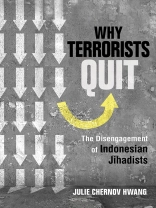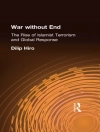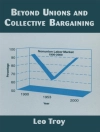Why do hard-line terrorists decide to leave their organizations and quit the world of terror and destruction? This is the question for which Julie Chernov Hwang seeks answers in Why Terrorists Quit.
Over the course of six years Chernov Hwang conducted more than one hundred interviews with current and former leaders and followers of radical Islamist groups in Indonesia. Using what she learned from these radicals she examines the reasons they rejected physical force and extremist ideology, slowly moving away from, or in some cases completely leaving, groups such as Jemaah Islamiyah, Mujahidin KOMPAK, Ring Banten, Laskar Jihad, and Tanah Runtuh. Why Terrorists Quit considers the impact of various public initiatives designed to encourage radicals to disengage, and follows the lives of five radicals from the various groups, seeking to establish trends, ideas, and reasons for why radicals might eschew violence or quit terrorism.
Chernov Hwang has, with this book, provided a clear picture of why Indonesians disengage from jihadist groups, what the state can do to help them reintegrate into nonterrorist society, and how what happens in Indonesia can be more widely applied beyond the archipelago.
Tabla de materias
Preface
Timeline
Introduction
1. The Rise, Decline, and Resurgence of Jemaah Islamiyah
2. Patterns of Disengagement
3. Anas
4. B.R.
5. Ali Imron
6. Ali Fauzi
7. Yuda
8. The Role of the State and Civil Society in Disengagement Initiatives
Conclusion
Notes
Glossary
Index
Sobre el autor
Julie Chernov Hwang is an associate professor of political science and international relations at Goucher College. She is the author of Peaceful Islamist Mobilization in the Muslim World.












